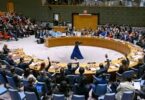Pakistan Tehrik-i-Insaf government presented its second mini budget in first five months of its tenure. Contrary to the claim of finance minister Asad Umar that he is not introducing a new budget but a reform package, the finance bill does not envisage drastic tax and tariff reforms except minor changes in the existing regressive taxation regime. The Prime Minister Imran Khan after taking oath of office had promised in first speech to introduce a progressive and egalitarians tax structure and carry out reforms in the Federal Bureau of Revenue to enhance tax collection from the affluent people who are still out of the tax net.
It seems that the economic reforms agenda has been abandoned under the pressure of powerful lobbies that are well entrenched within the federal and provincial governments. The Prime Minister had promised to allocate greater resources to education and health. But the public sector development programmes of the federal and provincial governments reveal massive reduction in the expenditure on education alone. Health budget has also been slashed significantly. According to the UNDP report the human development index of Pakistan is 0.50 percent. It has missed the targets of minimum development goals and is yet to move towards sustainable development goals.
The enhancement of sale tax on big cars, expensive mobiles and capital gains tax on non-filers of income tax returns plus other measures will enable the government to collect additional revenue of Rs. 400 billion which will slightly bring down the budget deficit. The long overdue measure of documenting the economy for increasing revenue collection from direct taxes has been avoided which is a clear violation of the Prime Minister’s vision of converting the country into a welfare state. Likewise, there is no serious effort in sight to address the issues of parallel economy and curb the flight of capital from the country. Regularization of black economy by bringing it under the tax net is essential.
Lowering of tax rate on small and medium enterprises by almost 50 percent will bring some improvement in the economic environment. Tax holiday of five years for the special economic zones will not have immediate impact on revival of the economy by increasing exports and generating employment opportunities. Reduction in tax in gas bills for the industrial sector will have a negligible impact. Relief of 200 rupees per bag in the price of fertilizers and easy credit facility to farmers are just a drop in the ocean for the agriculture sector because the prices of high quality seeds, insecticides, pesticides and small agriculture implements are very high which need reduction to boost agriculture production. Hopefully, the government will not abandon its economic reform agenda envisaged in the PTI manifesto.






